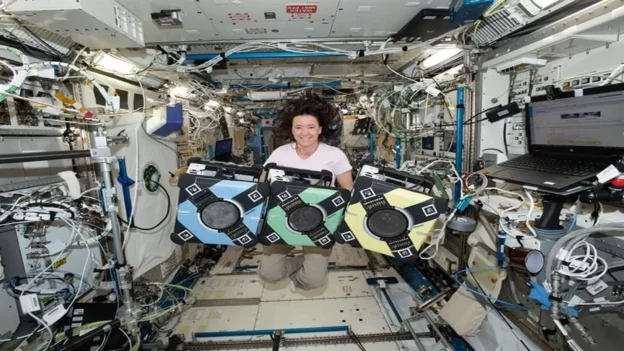NASA’s trio of free-flight robot assistants called Astrobees assist astronauts and conduct valuable research, including much research sponsored by the ISS National Laboratory.
Queen, Honey and Bumble: the assistant robots of the ISS
On the International Space Station (ISS), the Astrobees assist astronauts and carry out valuable research. These include projects sponsored by the ISS National Laboratory , as detailed in the latest edition of Upward, its official magazine.
In addition, the Astrobees, named Queen, Honey and Bumble, are used by researchers to evaluate new technologies that have crucial applications for both future space missions and return operations to Earth.
For example, in a recent study, the company Bosch, in collaboration with Astrobotic, has used these robots to experiment with smart microphone technology. This innovation has the potential to detect anomalies in spacecraft and other types of equipment through sound analysis, which could mean a significant advance in the monitoring and maintenance of space systems.
On the other hand, in a joint effort between the Massachusetts Institute of Technology (MIT) and the German Space Agency, Astrobees have been instrumental in testing algorithms and technologies designed to assist in the recovery of satellites that may be failing in space.
The Astrobees and the new generations of astronauts
The Astrobees also play a key role in training the next generation of space professionals. This is manifested through MIT’s Zero Robotics competition, part of the Space Station Explorers program. In this competition, students in grades six through 12 have the opportunity to develop codes that control these robots in various challenges within the station.
This program, in addition to teaching programming skills, allows young people to interact directly with astronauts, thus fostering their interest in scientific and engineering careers.
Likewise, the educational impact of initiatives like Zero Robotics is profound, as it combines theory and practice in a stimulating environment. Watching their codes come to life in space not only inspires students, but also provides them with a practical understanding of space physics and engineering, preparing them for the challenges of tomorrow.
Follow us on social networks and don’t miss any of our publications!
Inspenet.com YouTube LinkedIn Facebook Instagram X
Source and photo: azorobotics


